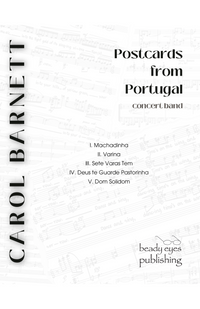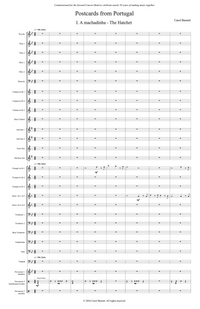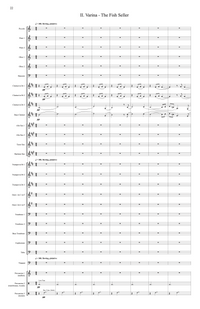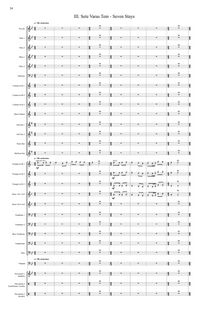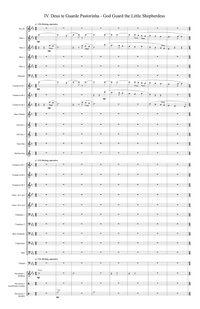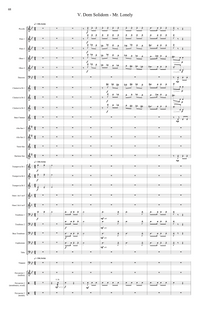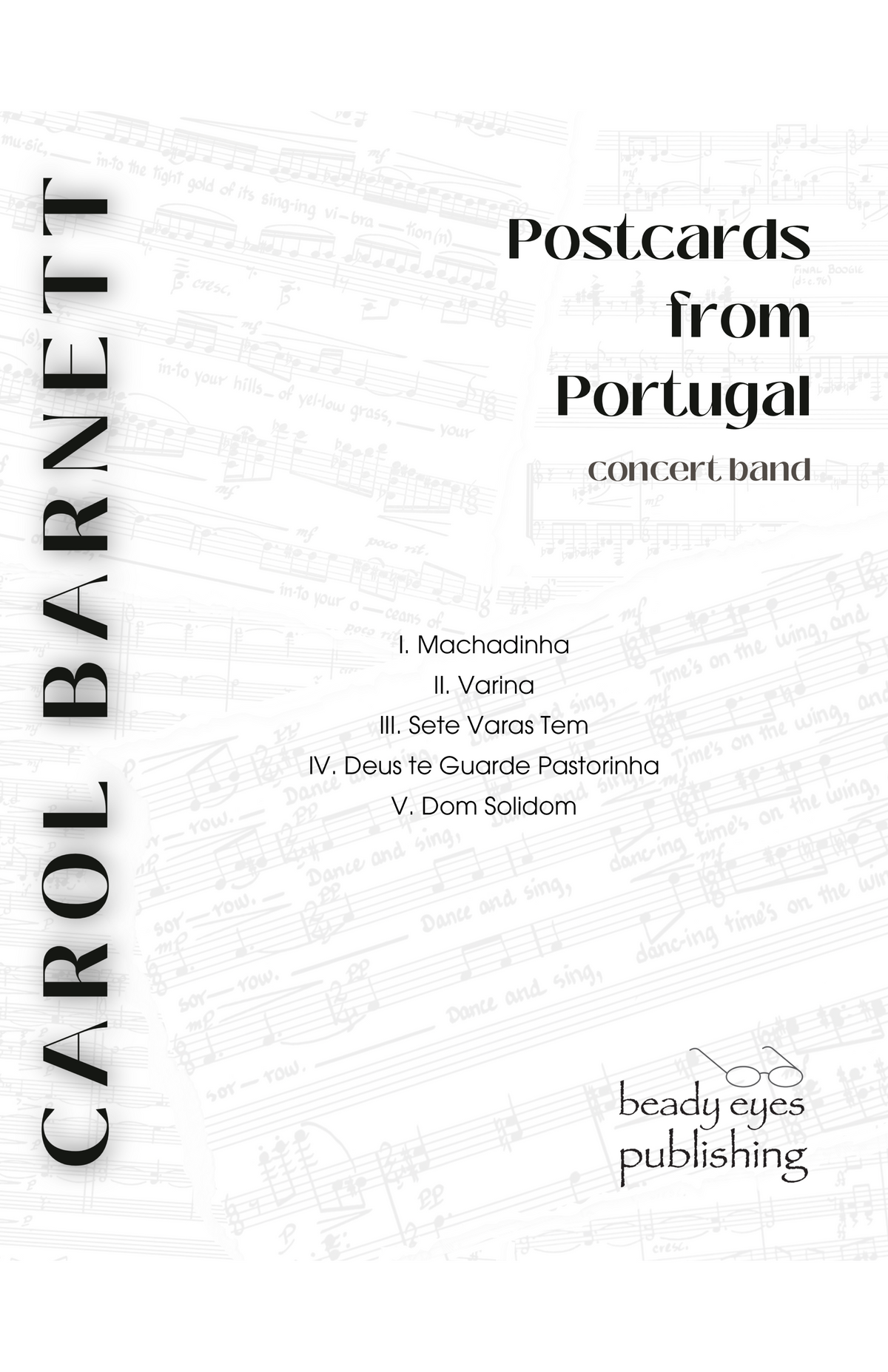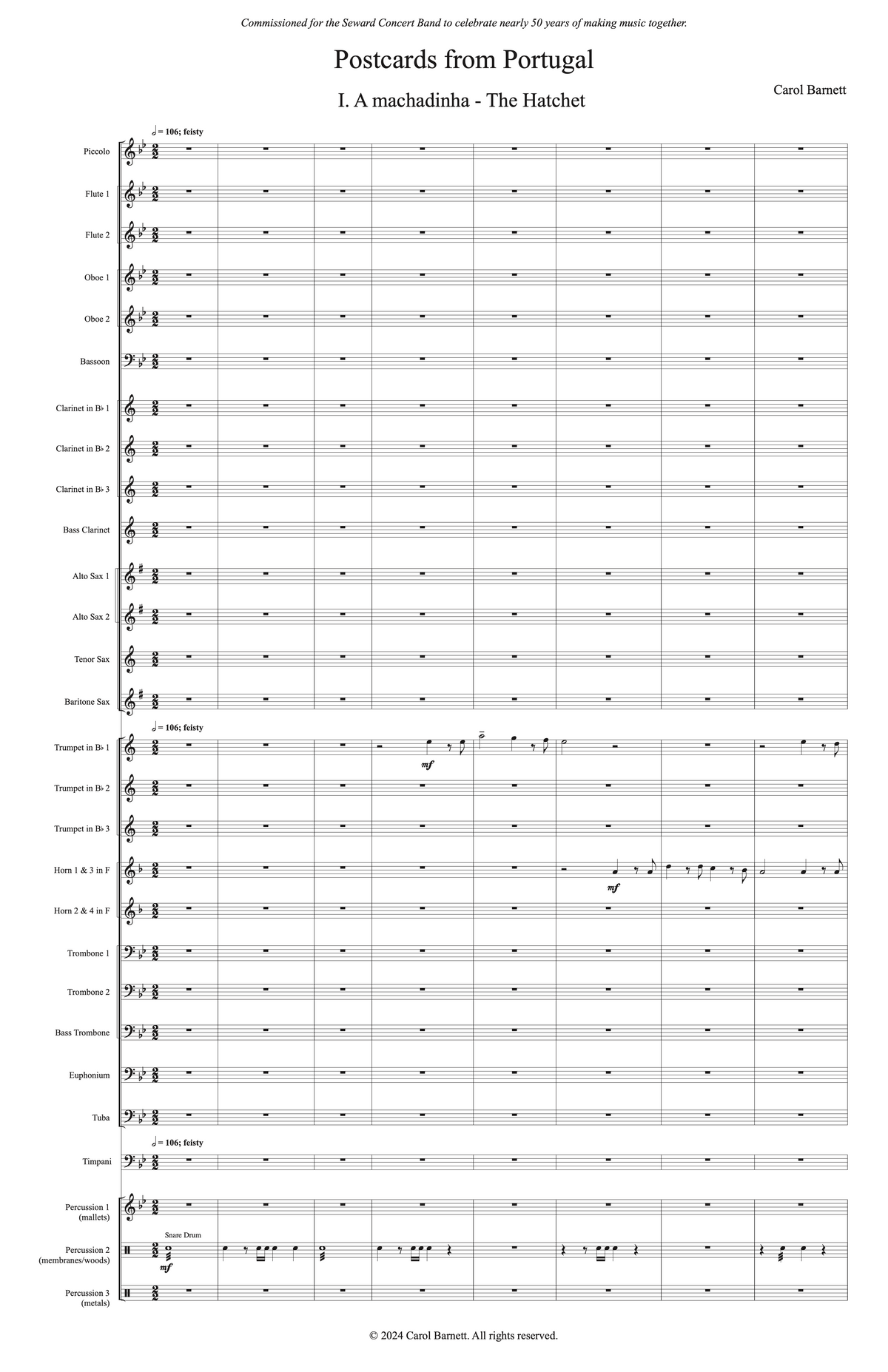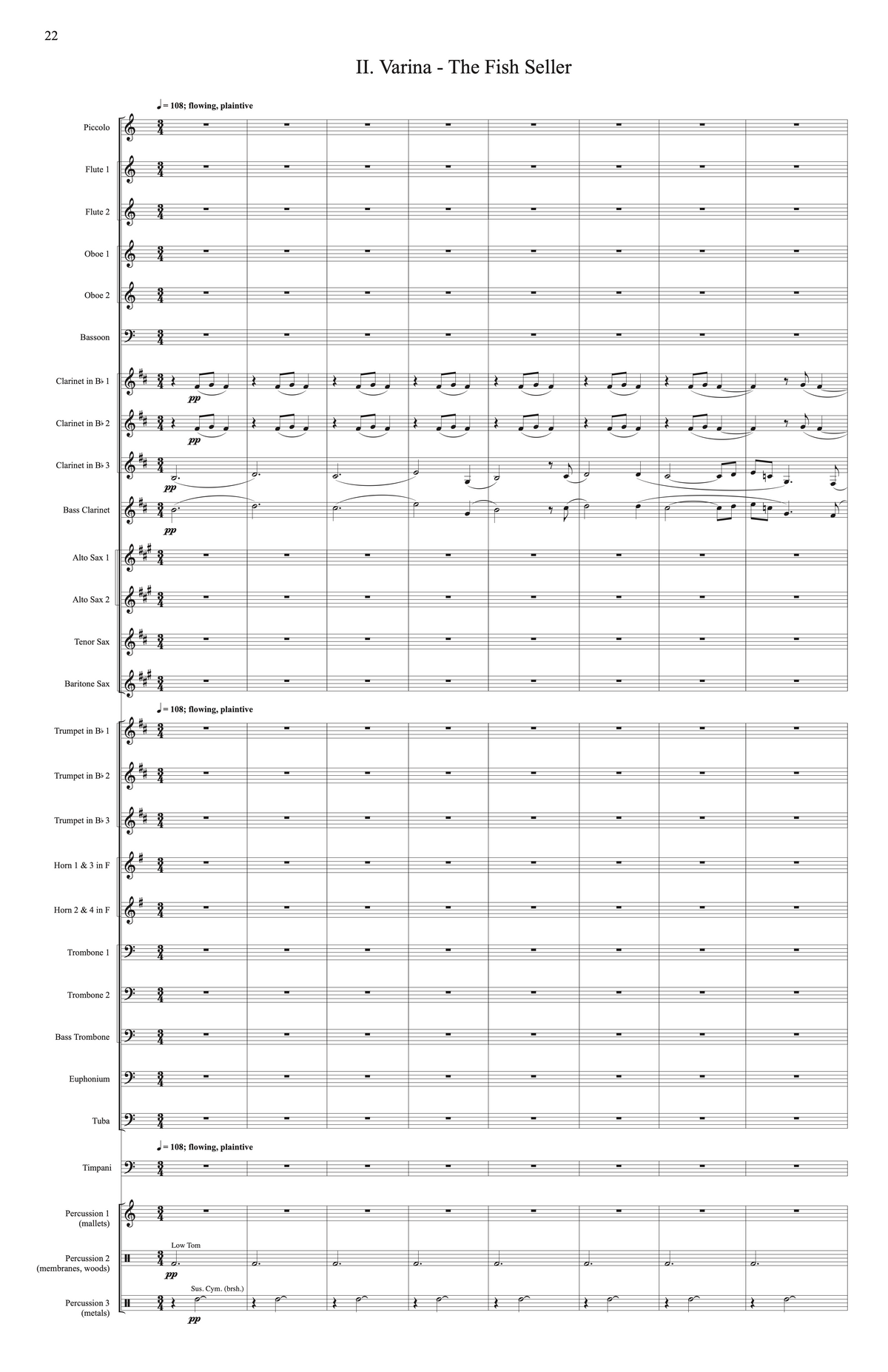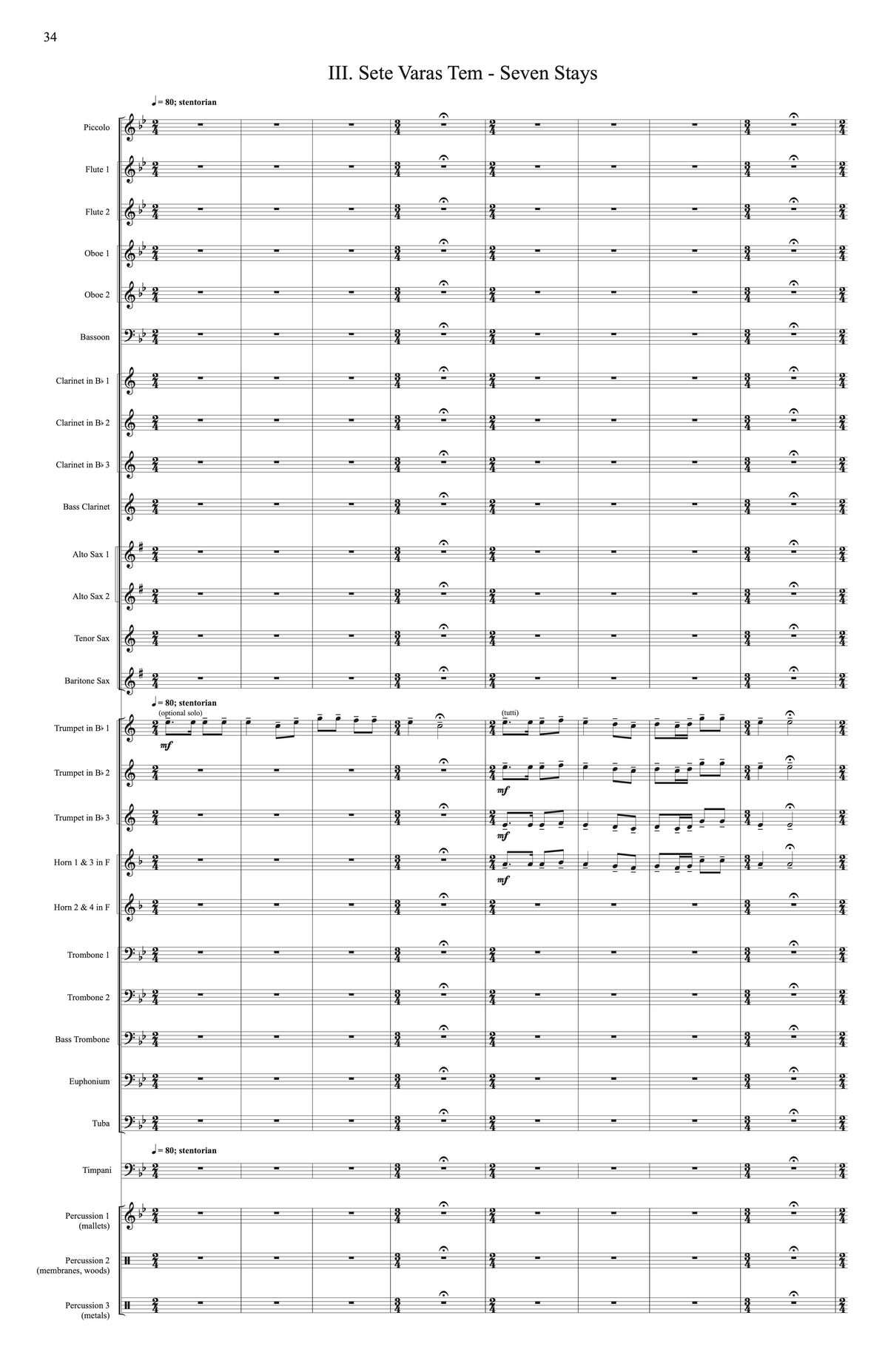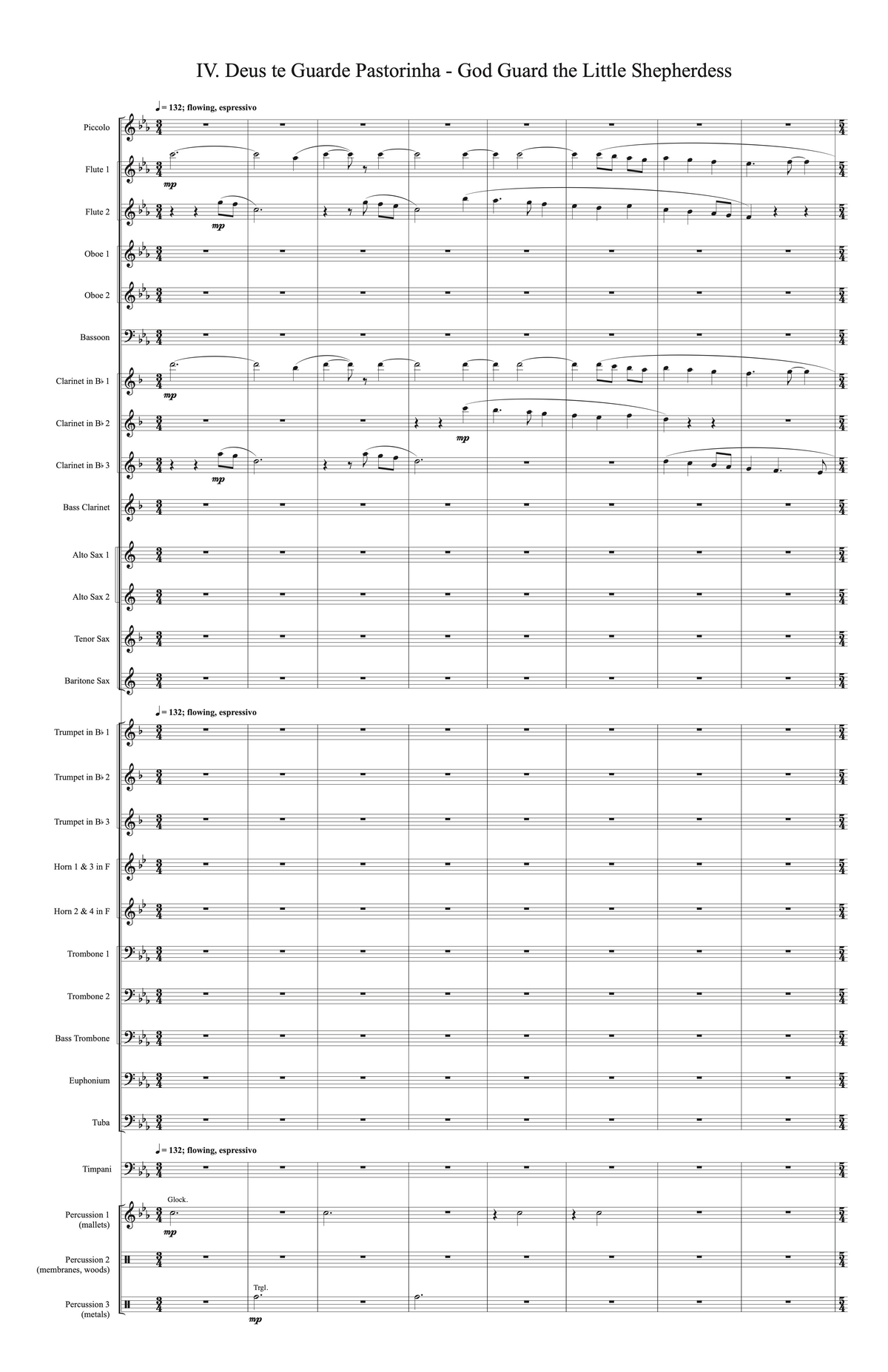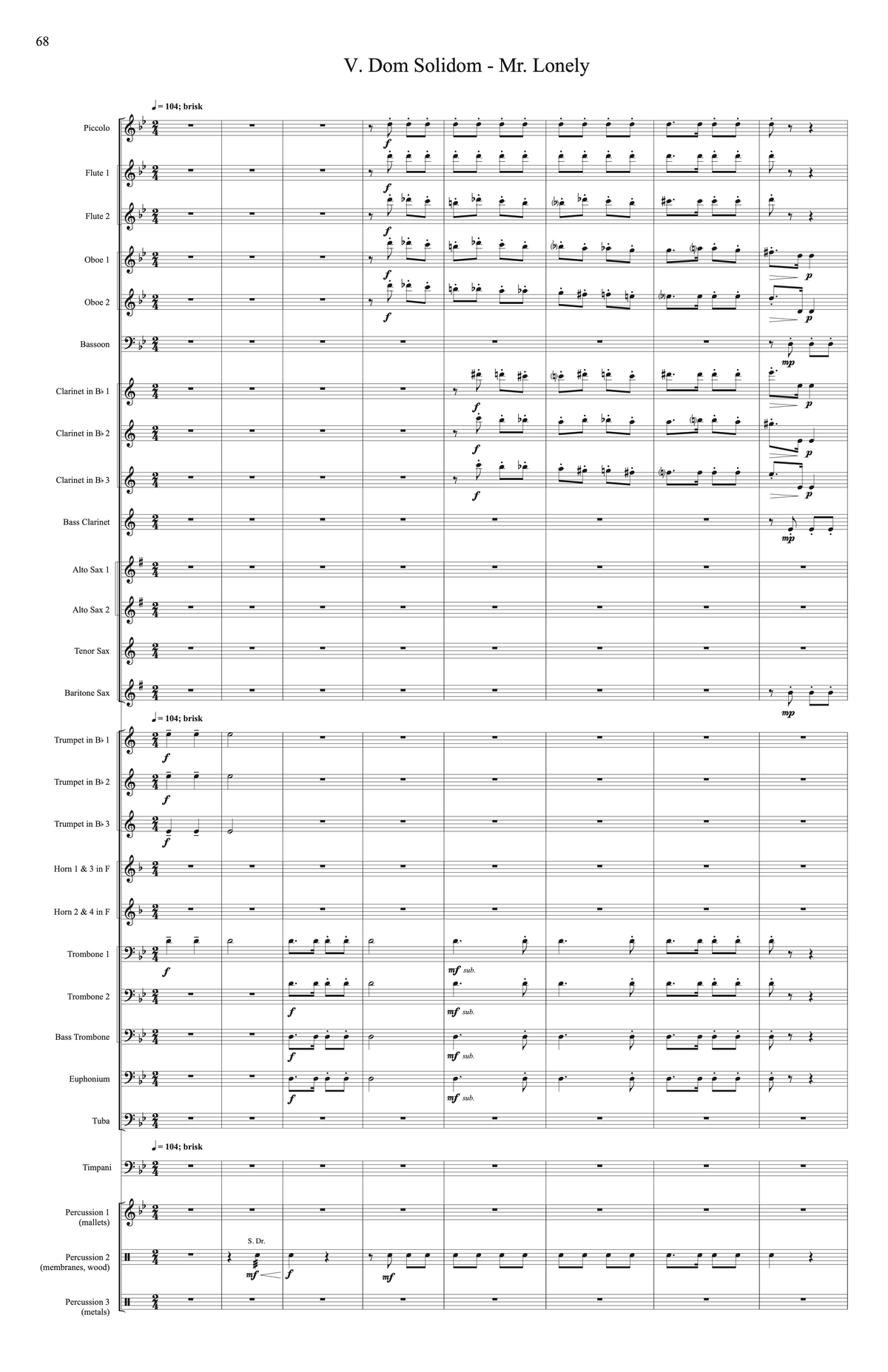Postcards from Portugal – for concert band – Carol Barnett
- Regular
- $24.99
- Sale
- $24.99
- Regular
- Unit Price
- per
Composer: Carol Barnett
Instrumentation: Concert band
Duration: ca 17:00 (five movements: 3:15; 3:00; 3:30; 3:45; 3:00)
Date Written: 2024
Instrumentation
Piccolo; Flute 1 and 2; Oboe 1 and 2; Bassoon; B♭ Clarinet 1, 2, and 3; B♭ Bass Clarinet; E♭ Alto Saxophone 1 and 2; B♭ Tenor Saxophone; E♭ Baritone Saxophone; B♭ Trumpet 1, 2, and 3; Horn in F (1 & 3, 2 & 4); Trombone 1 and 2; Bass Trombone; Euphonium (Baritone Treble Clef); Tuba; Timpani; Percussion I (mallets): Marimba, Glockenspiel; Percussion II (membranes and woods): Snare Drum, High and Medium Woodblocks, Low Tom, Castanets, Temple Blocks; and Percussion III (metals): Suspended Cymbal, Triangle, Crash Cymbal, Finger Cymbals, and Tam-tam.
Program note
Postcards from Portugal is a series of vignettes – five miniature fantasias based on Portuguese folk songs. The musical style is very much in the 20th-century wind band tradition and includes stylistic nods to two of my favorite 20th century orchestral composers, Shostakovich and Stravinsky. The music is also influenced by the lyrics of the tunes.
In A Machadinha, the singer seems to address his hatchet, asking “who laid a hand on you, knowing you are mine?” But could the “hatchet” be a girlfriend who has been lured away? The music is a sturdy dance tune in G minor.
Heard in a folk program one evening during a cruise on the Douro River in Portugal, Varina is a traditional song sung by women who walk the streets selling fish. Their song is a mournful waltz in A minor.
Alternating slow declamatory statements with lighter faster sections, Sete Varas Tem is sung by women working in the fields. They sing about a new skirt that isn’t quite perfect, and ask God and Our Lady to bless them.
This setting of Deus te Guarde Pastorinha (God Keep You, Little Shepherdess) imagines a little girl herding her wandering sheep out to pasture. Once safely there, perhaps she and the sheep indulge in a little dance. The evening bells ring as they wend their way back to the sheepfold.
The title, Dom Solidom, is a collection of rhythmic sounds that have no meaning. But “Dom” could be interpreted as “Mister”, and “solidum” is from the Portuguese “solidao”, meaning lonely. The lyrics draw Mr. Lonely’s attention to a girl with braided hair, a flower, a handkerchief... This brisk march tune in G minor completes the suite.

